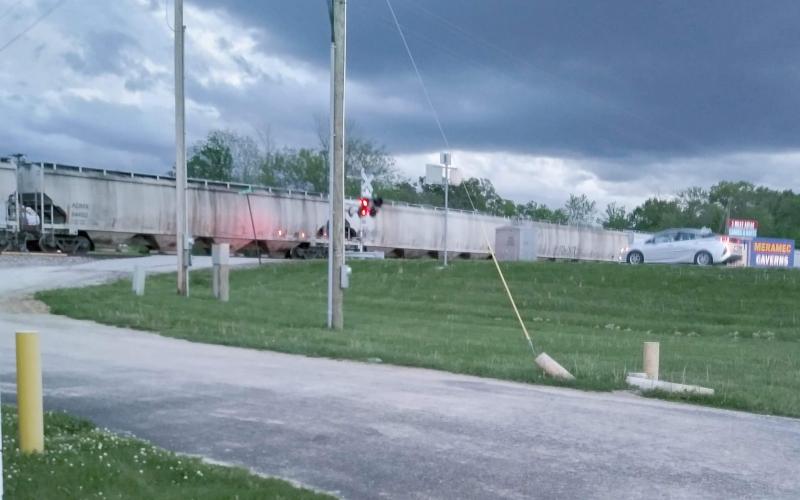The Little Engine That Could But Didn’t
Over 50 Stanton residents, along with two groups of campers, were once again stranded last Monday evening, as yet another BNSF train blocked the only means of ingress/egress for residents to the East of the tracks.
The train blocked the crossing for more than four hours.
According to witnesses, the train had been blocking the roadway crossing for "well over two hours" when they arrived around 9 p.m.
When the Independent News contacted a representative for BNSF just before 10 p.m., the only statement offered was, "Yes, we are well aware of the situation and we are doing everything in our power to get it resolved."
BNSF has declined to explain the specifics behind this blockage.
One area resident the Independent News spoke with was becoming concerned for her elderly father, who was at home on the opposite side. "He's got diabetes and dementia," said the resident, who preferred to remain anonymous. "I am his primary caregiver, and I was supposed to administer his insulin shot at 9 p.m. It's now 9:45 p.m. and I'm getting very worried!"
Another resident said that they had a carload of groceries with ice cream making a mess in their floorboard.
One man had driven to Chicago that morning and returned, only to have to wait for four hours despite being just 10 minutes from his home.
Yet another had been waiting since just after 6:30 p.m. to get home with their three children.
The Independent News/Missouri Possum Radio reached out to BNSF for an explanation and to find out what can be done to protect the area residents.
BNSF Senior Director of External Communications, Amy Casas, responded with the following statement
"BNSF trains operate 24 hours a day, seven days a week. We do our best to limit the amount of time any crossing is blocked on a mainline track. Our business and our customers depend on BNSF to keep our trains moving. When our trains experience a situation that forces them to stop BNSF works to correct or resolve the situation as quickly as possible to resume the safe movement of trains.
The Independent News is looking into how communication can be improved among the dispatchers and crews to reduce the time a train is occupying the crossing.
"Trains do meet and pass at this location and our crews are diligently working to ensure the crossing isn't blocked for extended periods of time," Casas said.
According to Casas, to "cut" a crossing takes more time because it requires the conductor walking the length of the train to the crossing, and then recoupling the train cars requires testing the air brakes.
"However, if a train is disabled or will be at the crossing for an extended time period, we will cut the crossing to keep it open to the public," she said.
Due to the severe medical concern brought about by the May 3 incident, combined with the limited response from BNSF, the Sullivan Independent/Missouri Possum Radio have reached out to the U.S. Department of Transportation Federal Railroad Administration.
At press time, this communication is ongoing.
A BNSF representative claimed that "Operations was not aware of any other blockages at that crossing in several months."
The Independent News investigated a January 25 blockage that lasted longer than 90 minutes.
Area residents also report anywhere from two to five blockages of longer than 10 minutes each during the average month.

